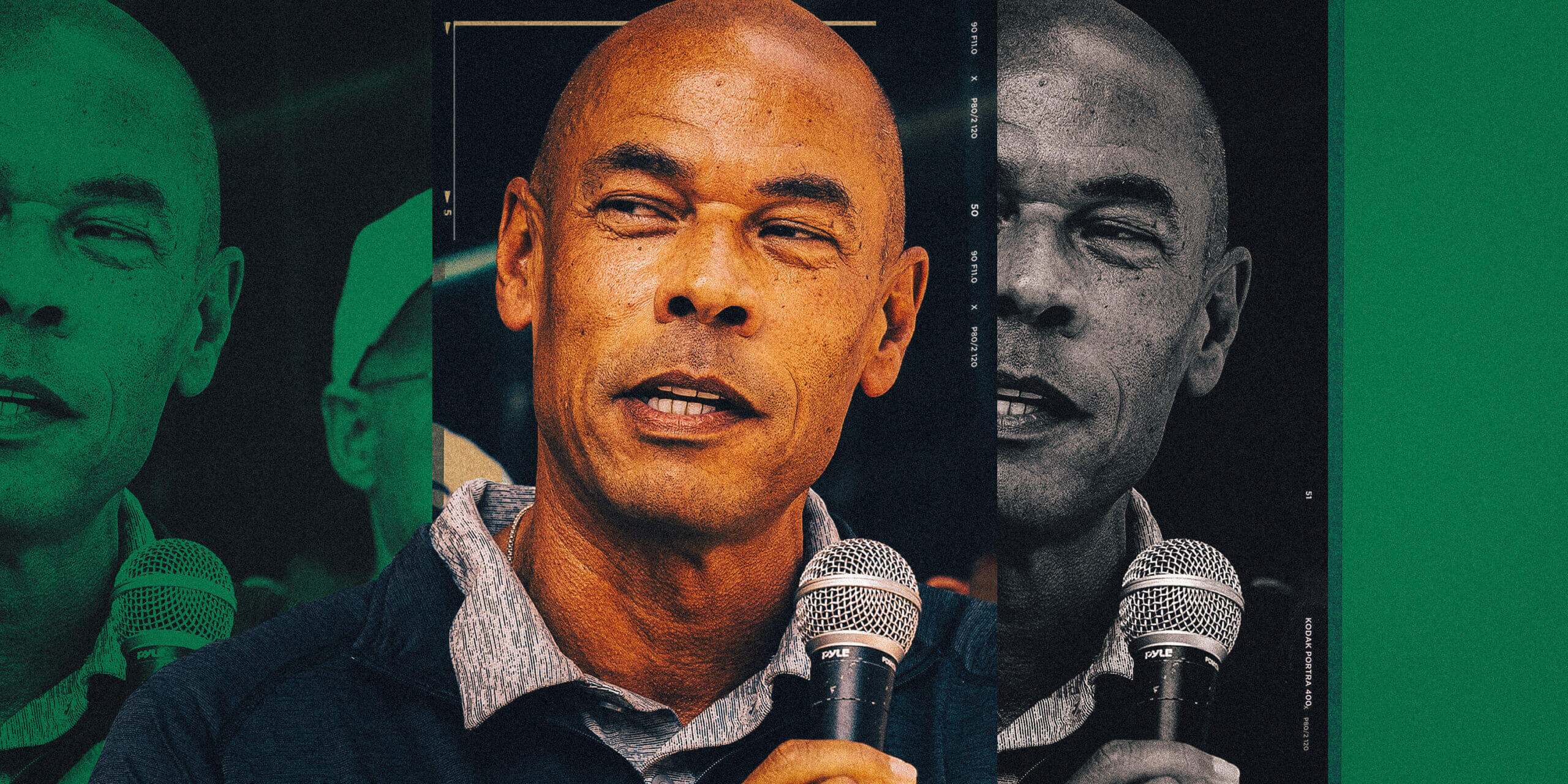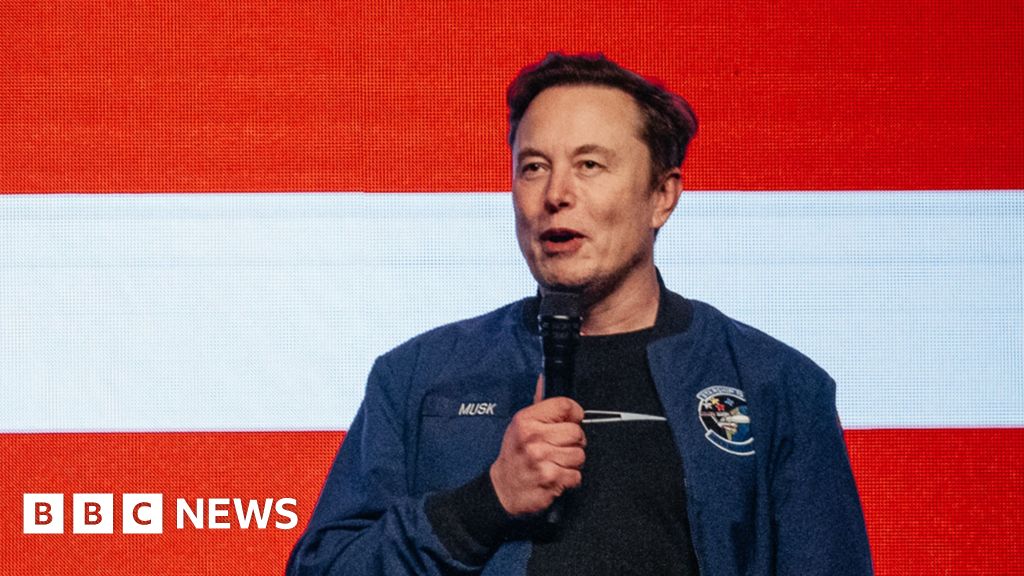
Why NFL players trust a football outsider to navigate 18-game-season negotiations and more
- Sports
- July 14, 2024
- No Comment
- 492
LOS ANGELES — Lloyd Howell needs directions.
“Wait,” the NFL Players Association executive director asks, weaving through a crowd of future star players and their entourages convened for a rooftop reception. “Which way is stage right?”
It’s the penultimate night of the NFL Players Association’s Rookie Premiere, a business and marketing orientation for 18 top first-year players. Caleb Williams, Jayden Daniels, Drake Maye and Brock Bowers are among those mingling, eating and drinking with peers, family members, friends, former NFL stars and current NFLPA business partners. They await the evening’s main event — an unveiling ceremony where the young players will see the game jerseys they will wear this fall.
This is the first Rookie Premiere for Howell, 58, hired by the NFLPA last June after an almost 30-year career at Booz Allen Hamilton, a defense contractor and consulting firm with expertise in cybersecurity, engineering and espionage, where he spent his final years as chief financial officer and treasurer before retiring in December 2022.
Forgive him his directionally challenged moment. Howell has spent the last year crisscrossing the country — meeting with players, owners, agents, general managers, and head coaches on a fact-finding/relationship-building mission — and the fatigue is real. Now, as his first year on the job draws to a close, Howell just has this final obligation to fulfill.
If he can figure out where he’s going.
Finally, he reaches his landmark, and the ceremony proceeds without a hitch. Howell welcomes the ceremony’s emcees, former NFL quarterback Michael Vick and safety Ryan Clark, who impart words of wisdom before directing the unveiling of the jerseys. Howell then introduces the rapper Quavo, who performs a couple of songs before the rookies get their opportunity to pose with their new team-issued attire.
Once in the background, where he prefers to operate, Howell takes in the scene and floats between conversations with Vick, Clark, Williams and Fanatics founder Michael Rubin, his quest for information seemingly never-ending. The owner of a bachelor’s degree in electrical engineering from Penn and an MBA from Harvard, Howell never envisioned working in the NFL universe. But now, the life-long sports fan and self-described “geek” is fully entrenched, with the opportunity to play a pivotal role in the league’s continued growth.

Howell prioritized meeting with players, owners, agents, general managers, and head coaches in his first year as NFLPA executive director. (Illustration: Eamonn Dalton / The Athletic; photo: Kevin A. Koski / NFLPA)
Howell won his five-year term as executive director last June after a secretive 16-month process largely because his expertise, vision and preparedness impressed the members of the NFLPA executive committee. During his second interview for his position, Howell turned the tables on committee members, grilling the men who would decide his fate rather than fielding their questions.
“He had our entire budget and was going line by line and making comments like, ‘Hey, I’m curious about this. I think this should be changed — just seems like it’s way too high. I really want to look into this, this detail here,’ and ‘Hey, what does this team do? This seems like there might be some crossover here,’” said Washington Commanders running back Austin Ekeler, an NFLPA executive committee member.
“We were blown away. Like, this man didn’t have this information for that long, and he was giving us these analytical breakdowns of things that he would suggest.”
The finances of professional football may have been foreign to Howell, but numbers and business practices were not. Growing up in Philadelphia, Howell learned about business and the importance of a strong work ethic from his father, Lloyd Howell Sr. (“a serial entrepreneur”), and mother Jeanette, a teacher. His love of sports was cultivated during his formative years. Although competitive swimming was uncommon for Black kids in Philadelphia during the 1970s, Howell was one of the early members of the Philadelphia Department of Recreation swimming program (founded by legendary swimming coach James Ellis, the program’s success inspired the 2007 film “Pride”). Howell played football in high school, calling himself an undersized tailback, and received offers to swim collegiately.
Then, in August 1984, just two weeks before Howell was to leave for Penn, Jeanette died of cancer only months after her diagnosis. “It was the first time in my life where your safety net, your everything, it’s just gone,” Howell said. “I found myself forced to think about things in a much more proactive, anticipatory way.”
The analytical approach forged through tragedy served Howell well in college — and as he climbed the ranks in the business world.
“It started as a security reflex, protective thing. And then I found that it had good implications to other aspects to my life, whether it was in school, whether it was business decisions, you name it,” he said. “I found getting into that mode just had all these benefits.”
“Lloyd often uses the term ‘North Star.’ ‘What is the North Star? Where are we going — both organizationally and then for this specific issue? … And in his framing of that discussion, everyone just starts to understand and collaborate,” said Matthew Curtin, who formed a business relationship with Howell during a 25-year span as vice president of J.P. Morgan and then managing director of Bank of America. In March, Curtin followed Howell to the NFLPA, where he is now the president of NFL Players Inc., the union’s licensing and marketing subsidiary.
Despite a change in fields, Howell’s approach has remained the same.
“He has this ability just to dissect the union and open our eyes to things that we might have not really paid attention to or we might let slip through,” said Detroit Lions linebacker Jaylen Reeves-Maybin, who was elected NFLPA president this spring. “And for him being able to do that within a year and see his areas of where he wants to improve, I think that’s been impressive.”
Howell’s hiring did not come without controversy. Former NFLA president JC Tretter said last year the prior two executive director hirings had been too public, so the union’s 32-member board of representatives agreed to allow the 11-player executive committee to vet candidates and approved a constitutional amendment that allowed the names of the finalists to remain secret until it was time for team player representatives to vote their approval.
Then, a month after Howell’s NFLPA hiring, Booz Allen agreed to pay $377 million to settle a Justice Department lawsuit alleging the company overcharged the U.S. government to help cover losses in other areas of its business. Booz Allen publicly disclosed the federal probe in June 2017, almost one year after Howell became CFO. A former employee who filed a civil complaint against the company in 2016 alleged in her lawsuit that she raised the issue of financial non-compliance for months with senior executives, including Howell.
His overall resume won over the NFLPA executive committee. Howell is not a lawyer, unlike his predecessor DeMaurice Smith, who during his 14-year tenure with the union negotiated two lucrative collective bargaining agreements with the league. Howell is also not a former NFL player, unlike the late Gene Upshaw, Smith’s predecessor, and a Hall of Fame Oakland Raiders guard who commanded the respect of owners.
The fact Howell was neither proved attractive.
“Because he’s an outsider — because he doesn’t have a stake in the game or a dog in the fight, I think that’s what made him come off as even more genuine in his efforts,” said free-agent safety Michael Thomas, an NFLPA executive committee member. “He’s very real and responds at a high level based off of his knowledge of business. … ‘Well, you know, no, I’ve never worked with NFL owners. But I’ve worked with billionaires before. I haven’t actually talked to (NFL broadcast partners) ESPN, CBS and Fox, but I’ve worked with billion-dollar companies. …
“Either you have that acumen and you have that high-level IQ, or you don’t. He’s smooth in the way he talks, but it’s genuine as he tries to understand and help us understand instead of trying to talk over you or be condescending.”
Once elected as NFLPA executive director, Howell wasted little time trying to learn the mindsets and priorities of both players and the owners. Throughout last season, he embarked on a league-wide tour to meet with each locker room and as many owners and/or general managers as possible.
Establishing a personal connection with NFL owners is vital to Howell’s mission. He believes that without strong relationships and receptiveness, he will fail in his quest to get owners to begin viewing players as business partners rather than commodities. As he met with the 25 owners (or ownership teams) who agreed to sit down with him, Howell worked to learn their perspectives and to educate them on players’ views.
“(They were) well-intended and, I felt, sincere people,” Howell said. “They have been engaging on some of the topics that we’ve talked about. They haven’t — with a few exceptions — they haven’t just been like, ‘Hell no. That won’t happen.’ Some of the topics, it’s more like, ‘Well, it’s complex. We’re gonna have to think about it.’ And I think they’re being sincere in that regard.”
On his Dallas tour stop, Howell scheduled a meeting with Cowboys owner Jerry Jones at team headquarters at “The Star” in Frisco, Texas. But when he arrived, Howell was greeted by Jones, his three children, and a host of grandchildren.
“It was important that my family meet him because he’s a part of what we are and he represents the constituency that deserves that from me,” Jones said. “So, it was not only respect deserved, individually speaking, but also as much about the respect owed because he represents all of the players.”
During the more than hour-long visit, the Joneses and Howell talked business — from playing surfaces to player contracts, team facilities to the current and future CBAs — and family. Howell left the meeting having earned Jerry Jones’ respect. He is someone who “wants to get out in front of things and help remedy things before things become a problem,” Jones said. “To me, he seems like someone that can look around corners. … I think that trait’s one of the best.”

Howell’s short-term goals include working on playing surfaces, offseason structures, penalties and fine enforcement. (Illustration: Eamonn Dalton / The Athletic; photo: Kevin A. Koski / NFLPA)
The NFL declined multiple requests to speak with Roger Goodell for this story, but Howell believes he has established a good working relationship with the commissioner. Their behind-the-scenes work last fall resulted in less-stringent punishments for gambling rules violations on non-NFL contests, which was viewed as a win for the players, but Howell still sees room for improvement on a wide range of issues.
He wants NFL owners to consider an evolution of contracts that includes equity stakes for players. Lionel Messi got such a deal last year from MLS club Inter Miami CF, which gave the soccer star a two-and-a-half-year contract worth up to $150 million that included a future ownership stake in the team.
This spring, news leaked that the NFLPA’s executive board was considering a proposal that would dramatically alter the offseason workout schedule to begin in late June rather than April.
“We are the beneficiaries of growing revenue, popularity, you name it. But nothing lasts forever,” Howell said. “So we have to look at it and evaluate what could be better. What could we do? How do we get in front of this? … We should know what the economics are and then how to optimize it. And for the benefit of all, not just one group.”
Earlier this year, Goodell publicly said the league would eventually like to move to an 18-game regular season. Barring a revision agreed to by both the league and the union, the current CBA prevents that expansion until its expiration in 2030, but Howell sees no point in waiting to begin deliberations.
“I’m glad Roger said 18. I’m glad that he’s leaning into international (games),” Howell said. “I think it gives our guys the opportunity to kind of get their thoughts together, get our position together, to say, ‘This is what and how we’re thinking about it.’”
Howell noted that discussions need to occur about how the additional game would affect, among other things, field surfaces, bye weeks, international travel, practice squads and player compensation. “It sounds attractive. Who doesn’t want to see more football, myself included?” Howell said. “But all these other things have to be worked out.”
Players will not readily agree to an 18-game regular season. And owners will not readily agree to incentives for which players ask. So Howell believes the best way to avoid a lockout in six years is to start talking now.
“It makes no economic sense for anyone to have a strike or a lockout,” he said. “The world’s most popular sports league is going well. How do we keep that going? A lockout is an irrational thing. What’s more rational is, ‘Hey, if I could grow this two times, if I could grow this three times, then we should figure out what the agreements would need to be.’
“That’s what rational private-sector people do.”
Smith presided over CBA negotiations in 2011 (which included a four-month lockout) and 2020, and while those deals ultimately proved lucrative for all involved, the players believed a change in approach was necessary.
“As we talked through the search process about what we needed in the next person, we decided we needed more than just a labor lawyer,” Thomas said. “Because of how much the business of the game has grown, we felt like we needed somebody who can take us even further, help us run as a business, speak the same language as these owners, and Lloyd is exactly that.”
Howell enters Year 2 on the job with eyes on short- and long-term goals. By next summer, he wants to have begun effecting change in NFL playing surfaces, offseason structures, penalties and fine enforcement. Meanwhile, he’ll continue working toward solutions on more complicated matters, like revenue sharing, expanded seasons and teaming with the NFL in its quest for a lasting stake in the international market.
“It all takes time, and we have to approach it all with a healthy amount of analysis, a healthy amount of scrutiny,” Howell said. “But the North Star should definitely be: How do we all get on the same page toward increasing the value of this already growing enterprise?”
The rookies have questions, and Howell has answers.
Amid the marketing tutorials, photoshoots and memorabilia-signing sessions at the Rookie Premiere, Howell picked off players here and there for face-to-face meetings. He wants to establish relationships and start educating the rookies on how the union can help them throughout their careers and beyond. If there’s one thing he learned during his league-wide tour, it’s that far too many NFL players didn’t know about the benefits the NFLPA has to offer.
Given the chance to pick Howell’s brain, players capitalized. Some, like No. 1 pick Williams — the Chicago Bears’ business-savvy quarterback, who made millions in Name, Image and Likeness earnings his final season at USC — had questions about the history and purposes of the salary cap. New England Patriots wide receiver Ja’Lynn Polk sought insight on how the league’s fine system works and the assistance that players receive from the NFLPA during the appeals process. Others wondered about benefits, offseason structures, the likelihood of an 18-game season and its impact on rest and recovery time.
Howell made seven figures at Booz Allen and $2.2 million in compensation from the NFLPA in 2023, per Sports Business Journal, but people close to him said he views the union role as a mission. He is fueled by the chance to position current and former NFL players for life-long financial stability and to provide the quality working conditions necessary for improved physical and mental health.
In some ways, the divorced father sees his two adult sons in the young men he now serves. And a deep dive into the history of the NFL and the journey of its players has bolstered Howell’s resolve.
“I’ve always liked challenges even if initially they seem insurmountable,” he said. “I don’t know if it’s a hero complex. I don’t know if it’s just a glutton for punishment. But to be able to go into a situation that has a lot of challenges and the odds are stacked against you and to prevail … this is making a difference for young men who are entering into a very complex industry with tremendous pressure.”
(Illustration: Eamon Dalton / The Athletic; photo: Lev Radin / Pacific Press / LightRocket via Getty Images)
#NFL #players #trust #football #outsider #navigate #18gameseason #negotiations









